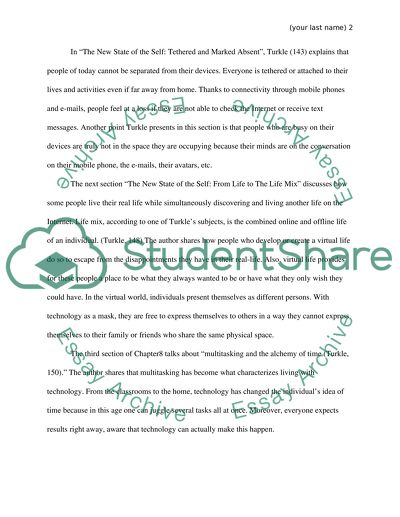Cite this document
(“EVALUATIVE ESSAY-Always on(Chapter 8) from Alone Together:Why We Essay”, n.d.)
Retrieved from https://studentshare.org/philosophy/1474858-evaluative-essay-always-onchapter
Retrieved from https://studentshare.org/philosophy/1474858-evaluative-essay-always-onchapter
(EVALUATIVE ESSAY-Always on(Chapter 8) from Alone Together:Why We Essay)
https://studentshare.org/philosophy/1474858-evaluative-essay-always-onchapter.
https://studentshare.org/philosophy/1474858-evaluative-essay-always-onchapter.
“EVALUATIVE ESSAY-Always on(Chapter 8) from Alone Together:Why We Essay”, n.d. https://studentshare.org/philosophy/1474858-evaluative-essay-always-onchapter.


